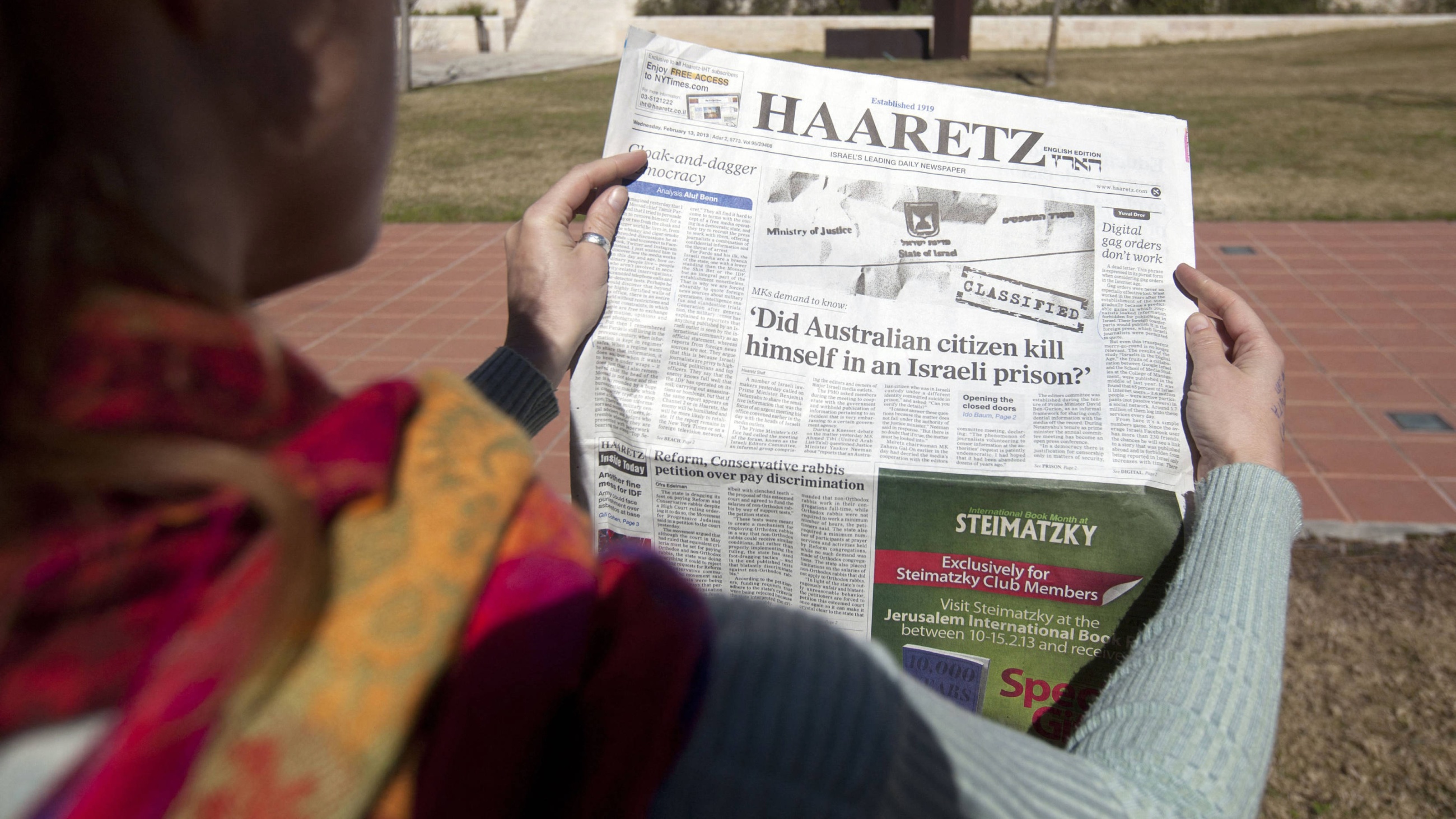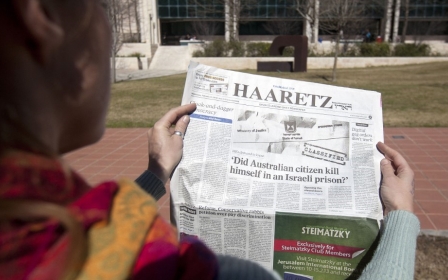Israeli government sanctions Haaretz, severs all ties

The Israeli government approved a proposal on Sunday directing all government-funded organisations to cease communications with Haaretz and withdraw advertisements from the newspaper.
The government said the decision was prompted by "many articles that have hurt the legitimacy of the state of Israel and its right to self-defence, and particularly the remarks made in London by Haaretz publisher Amos Schocken that support terrorism and call for imposing sanctions on the government".
Earlier this month, Schocken faced criticism from the Israeli government following his comments referring to Palestinian "freedom fighters".
The proposal, which was added to the cabinet meeting agenda at the last minute, was endorsed by Prime Minister Benjamin Netanyahu.
In response, Haaretz released a statement on Sunday, saying: "The opportunist resolution to boycott Haaretz, which passed in today's government meeting without any legal review, is another step in Netanyahu's journey to dismantle Israeli democracy. Like his friends [Russian President Vladimir] Putin, [Turkish President Recep Tayyip] Erdogan and [Hungarian Prime Minister Viktor] Orban, Netanyahu is trying to silence a critical, independent newspaper.
New MEE newsletter: Jerusalem Dispatch
Sign up to get the latest insights and analysis on Israel-Palestine, alongside Turkey Unpacked and other MEE newsletters
"Haaretz will not baulk and will not morph into a government pamphlet that publishes messages approved by the government and its leader."
The Israeli newspaper also said that the attorney general’s office was unaware of the proposal being brought to a vote and had not reviewed or provided a legal opinion on it.
During a speech at a conference in London on 1 November, Schocken said: "The Netanyahu government doesn't care about imposing a cruel apartheid regime on the Palestinian population.
"It dismisses the costs of both sides for defending the settlements while fighting the Palestinian freedom fighters, that Israel calls terrorists."
Schocken later clarified his remarks, explaining he did not consider Hamas to be "freedom fighters" and emphasised his support for freedom fighters who did not use "terrorism".
Haaretz subsequently issued an editorial disavowing its publisher, saying that Schocken's clarification did not go far enough, as it failed to condemn attacks by other Palestinian groups.
Despite this, Communications Minister Shlomo Karhi called for a government boycott of the newspaper and submitted a proposal detailing a series of restrictions.
The proposal issued by Karhi's office said the government "shall not enter into new contracts with Haaretz, including individual subscriptions for state employees, nor renew any existing contracts; all current agreements with Haaretz, including personal subscriptions, will be cancelled as legally feasible".
It also instructed the Government Advertising Agency to "direct Haaretz to cease all advertisements, including statutory notices, regardless of payment status and seek refunds for any existing payments. No further ads shall be placed in the publication".
Middle East Eye delivers independent and unrivalled coverage and analysis of the Middle East, North Africa and beyond. To learn more about republishing this content and the associated fees, please fill out this form. More about MEE can be found here.





